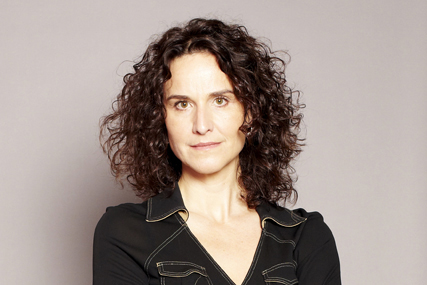Xerox wants to sell you accounting services.
Xerox wants to sell you accounting services. You can see the challenge faced by Ursula Burns, one of corporate America's most talked-about chief executives, in her mission to turn the Connecticut-based giant into an upstream business-services provider.
Along with Hoover and Google, Xerox is one of those rare brand names that has become an everyday verb. You didn't just photocopy something, you 'Xeroxed' it. That locked-in association meant a gravy train in the heady years of the mid-20th century, as the corporation's technological lead in a burgeoning market made Xerox one of the greatest growth stocks of all time.
Today, that core 'printed page' market is valued globally at $132bn, but it has become much more competitive. Conversely, the market that Burns is aiming to dominate - back-office services such as accounting, call-centre management and HR processing - is worth $400bn globally, with higher margins. The financial logic is sound, but the issue of credibility is more moot. As Xerox has a foot in both camps, this means a considerable stretch of brand equity.
It is early days, but Xerox's transformation may play out to be an object lesson for other B2B brands seeking to make the journey upstream. It is a common theme with a common imperative: to move away from the tough business of making and selling lumpy objects in increasingly commoditised markets, to the comparatively purer air of selling 'smart invisibles' such as advice and business services, with their healthier margins.
One lesson dispensed by Burns is that if you're going to venture upstream, you need a large paddle. Hers cost $6.4bn and came in the shape of ACS, a Texas-based, business-process outsourcing group, which was acquired among doubting whispers from analysts in 2009. Cross-over business from clients such as P&G and Target is already persuading those analysts that they might have been wrong.
Subtlety, as well as boldness, has been a feature of Xerox's reinvention. The route to services was slowly prepared before the ACS acquisition, through the natural step of offering outsourced documentation management. From there, the logic is that Xerox can migrate to other services unconnected to its original core competence, with a positioning as a brand that understands all the unsung processes of business life.
For now, Xerox and ACS, which is well-known in the US, are maintained as distinct brands, focused on their respective competences. Burns has created a microsite brand, realbusiness.com, to highlight the success stories of big customers, such as hotel chain Marriott, which have taken advantage of the full range of technological and back-office services, allowing them to 'focus on their own core business'. A seamless assimilation of the ACS brand under the Xerox name is a likely end point, but there is no rush to get there.
Rivals such as HP, Intel and Dell will be watching with interest. If Xerox can break out from its historically narrow brand niche and take on the full sweep of lucrative business services, anyone can. What those others may lack, though, is a leader such as Burns, whose daring, dedication, intellect and candour have seen her tipped as a successor to Larry Summers, as economic adviser to the White House. If she goes, that special human combination could be one thing even Xerox cannot replicate.
Helen Edwards has a PhD in marketing, an MBA from London Business School and is a partner at Passionbrand, where she works with some of the world's biggest advertisers
30 SECONDS ON ... Ursula Burns
- Ursula Burns, 52, is the first African-American woman to run a top US firm.
- She was brought up by a single mother on a tough estate on Manhattan's Lower East Side.
- Burns first worked for Xerox as a summer intern in 1980, joining on a permanent basis the following year.
- When she took over as Xerox's chief executive from Anne Mulcahy in July 2009, it was the first all-female handover of the top job in a major US corporation.
- Both women are being talked about as potential economic advisers to the Obama administration.
- Burns has a BSc and an MSc in mechanical engineering.
- She masterminded the integration of ACS, following its $6.4bn acquisition in 2009.
- Burns believes that if Xerox had not embraced change since nearly going bust in 2000, it would no longer exist.
- In 2009, publishing company Forbes rated Burns the 14th most powerful woman in the world.


